- Home
- Janet Dailey
This Calder Sky Page 7
This Calder Sky Read online
Page 7
Webb’s gaze lifted sharply. “I was trying to remember how old the O’Rourke girl is.” The slight jerking of Chase’s head told Webb his question had struck a nerve, but his son recovered quickly.
“Sixteen.” Chase fell into the same trap Maggie had, trying to add those few months to make her seem older than she was. “Why?” He was uncomfortable with his father’s probing questions, but he didn’t let it show—uncomfortable because of his strong need to protect Maggie, to shield from eyes that might judge her by accepted standards—wrong standards.
Examining his son’s closed expression, Webb kept his suspicions to himself for the time being. “No reason.” He turned to leave. “Hurry up with your shower. Ruth is serving dinner in forty-five minutes.”
“I’ll be down directly,” Chase promised, but didn’t move until his father had left the room.
At the sound of footsteps retreating from his door, Chase entered the bathroom and paused in front of the mirror. Twisting to one side, he was able to make out the red marks on his shoulders where Maggie had dug her nails into him. Obviously, his father had noticed them, too. Had he guessed what had caused them? A heavy sigh broke from Chase as he turned to the shower.
Throughout dinner and the serving of coffee and brandy in the den afterward, Chase tried to appear to be paying attention to the various discussions, but most of the time his mind was wandering.
The senator had passed out more of his cigars. This time Chase smoked his, the richly fragrant tobacco smoke rising like a cloud above his head. He rolled the butt between his teeth and watched the white smoke.
The whiteness of the smoke made him think of the milk-white perfection of Maggie’s skin. He was aware how much she had awakened his protective instincts. A sudden smile broke across his features as he realized he wanted to protect a girl who had whipped him with a rope in front of a dozen riders.
“Look, Chase appreciates my joke even if no one else does,” Senator Bulfert declared. Hearing his name brought Chase sharply back to the present. He joined in with the laughter of the other men and hoped to hell no one asked him about the story the senator had just told. He encountered his father’s steady gaze and knew that was one man he hadn’t fooled.
Removing the pan of water from the stove, Maggie rinsed the soapsuds off the dishes stacked in the sink. Both her father and brother were sitting at the kitchen table, whose white enameled paint was turning yellow with age. She didn’t bother to suggest that since she had cooked the meal and washed the dishes, one of them could help her by drying them. Neither of them did women’s work. She took a towel off the rack and started drying them herself.
There was a brooding quality to the atmosphere. Maggie could feel its heaviness. Her brother had said nothing to her, but she knew her father had told him his version of what had transpired between her and Chase Calder. Culley had avoided meeting her gaze all evening, but kept stealing glances at her when he thought she wasn’t looking.
“How I miss your mother,” her father murmured in a melancholy voice and took another sip from his whiskey glass. A gentleman always had a shot of whiskey after a meal, or so he had always said to their mother in defense of the practice.
“I can still remember that day my ship docked in San Diego and I had a three-day pass. Our cruiser had been out to sea for nearly three months.” He leaned on the table, directing his words to Culley. “Me and a buddy of mine went out on the town. I mean, we really painted it red. I was drunk one whole day and don’t remember anything we did. Finally, I passed out and my buddy left me to sleep it off in the car.”
“And when you came to, you heard the church bells ringing.” Culley had heard the story before, but his comment was a prompting for his father to continue.
“That’s right.” Her father refilled his whiskey glass without letting it get empty first. “The way I was feeling, I knew I had done some sinning that needed forgiving, so I followed the sound of those bells for a couple of blocks before I found the church. I was wearing my dress whites, so I brushed myself off good before I went inside. Mass was about to start when I walked in, so I took a seat in one of the rear pews.”
“That’s when you saw Mom for the first time.” It was an old story to Maggie, too, but this was the part of it she liked.
Looking objectively at her father, she could see how very handsome he had once been. She remembered the snapshots she’d seen of him in his navy uniform. It wasn’t any wonder that he’d swept her mother off her feet.
“I was looking around at all the beautiful stained-glass windows when I noticed your mother sitting in the next pew with her parents and her sister, Cathleen. I smiled at her and she smiled back. With that white scarf over her head, she reminded me of paintings I’d seen of the Madonna. She was so beautiful I couldn’t take my eyes off her.” Some of the vivid roguish charm he’d once possessed was captured once more in his smile. “You can bet that after church, I made a special point of meeting her.”
“And you invited her to come out to your ship and promised you’d personally show her around,” Culley said.
“She came, too, but she brought her sister, Cathleen, along. I had an awful time convincing Mary Frances that I wasn’t like some of the other sailors in port. I had more trouble convincing her parents and her sister. But I knew the moment I saw her that she was the girl for me. We were married four weeks later. I thought I had the world by the tail,” he sighed.
Her father didn’t carry the story beyond that point, but her mother had told Maggie the rest of it—how her father hadn’t been able to find a decent-paying job in California after he’d been discharged from the navy. Since he’d always dreamed about owning a cattle ranch, he’d taken the money her mother had inherited from her grandparents and bought this ranch in Montana without ever seeing it first. Maggie remembered how her mother used to talk about their plans to remodel the house, plans that were never realized. The additions were tacked onto the main structure in a helter-skelter fashion. During the last two years before her mother died, she rarely mentioned the plans to remodel their home, as if she knew it was another one of her husband’s dreams that wouldn’t come true.
Much of what Maggie knew about the early years, she had gleaned from reading between the lines. When her father had first arrived, he had believed ranching was a snap. All a man had to do—so he thought—was turn a bunch of cows loose on the range with a bull and the next year sell the calves for a huge profit. He didn’t realize how much work went along with it, from constantly checking and repairing fences to bailing hay for winter feed, not to mention wet-nursing a bunch of dumb cows and calves.
The land on which the Shamrock Ranch was located looked ideal for raising cattle, but the rough terrain supported little grass. Each year there were cows that had to be destroyed because of broken legs. Rattlesnakes took their toll, too, as well as coyotes preying on calves or crippled cows. And the water supply was insufficient. In bad years, even the house well went dry. But the Calder ranch stretched to the south with its abundance of rich grass and water.
Her father was always dreaming of ways to make it big. One year he tried his hand at panning for gold—certain he would strike a mother lode. But gold-prospecting was hard, back-breaking work, requiring hours of labor with no guarantee of finding color. Lacking persistence, he soon gave it up. Another year, he tried to convince gas and oil companies to drill on his land, but all their surveys were negative. With visions of hitting a gusher, he tried to drill one himself, but he gave up before they had even gone deep enough to hit water. It was too much work. He was always certain there was an easier way to strike it rich—like the Calders.
Not once in all the years they’d lived there had there been enough money for her mother to return to California to visit her family. Her mother’s parents had died and there hadn’t been enough money to travel all the way there for the funeral. Her mother had cried then. They still received a Christmas card each year from her sister, Cathleen, a widow who lived in Lo
s Angeles.
Angus slammed his fist on the table, startling Maggie out of her reverie with an explosive release of his Irish temper. She turned to look at him and saw the black petulance in his expression.
“Calder isn’t going to get away with it!”
“Pa, don’t start in on that,” Maggie protested stiffly.
But he took another swallow of whiskey and paid no attention to her. “It didn’t matter to him that you were a good girl. Did he have any respect for that? No, he’s a Calder. He does whatever he damned well pleases, and doesn’t care if some innocent person has to suffer.”
He had been building up to this outburst all evening, she realized. Nothing she could say or do would silence his tirade, so she clamped her mouth tightly closed.
“Calder isn’t going to keep his mouth shut. No, he’s going to start bragging around about it, spreading ugly stories about Maggie,” he declared.
“If he opens his mouth, I’ll shut it for him,” Culley threatened.
“You’ll do nothing of the kind.” In spite of her resolve to stay out of this, her temper flared. “All this is nothing but a lot of boastful talk!”
“I’m going to do more than talk, little girl.” Angus O’Rourke stood up, weaving a little, his face white beneath its tan. “I’m going to have myself a talk with old man Calder. He thinks that him and his son can do anything, but I’m going to tell him that they can’t. They aren’t going to get away with what happened today. You just wait and see. I’ll put the fear of God into them.”
“Pa, stop saying things that you have no intention of doing.” Maggie turned away. She was tired of his empty words.
“I am going to see Calder!” he stated emphatically.
“When, Pa?” She looked at him with mocking skepticism. “When the sky turns green?”
“Don’t sass me, girl!” He pointed a threatening finger at her, but she showed her indifference by turning away.
PART II
A sky of Justice
A sky so strong
This sky that pays for
A Calder’s wrong.
Chapter VI
The senator and his party left at mid-morning the next day. Chase and his father accompanied them to the ranch’s grass strip to see them off. As the plane climbed out, it wagged its wings in a final farewell salute, the sunlight winking off the shiny surface of the metal.
Scratching a match over a denim-covered thigh, Chase cupped the resulting flame to the cigar the senator had given him before boarding the plane. He puffed on it, then held it between his teeth while the aromatic smoke curled into his nose. As he turned to walk back to the car with his father, he curved a forefinger around the cigar to hold it away from his mouth.
“If nothing else, the senator knows a good cigar.” He slanted a wry glance at his father.
“Your mother never could stand the smell of those things.” The softness of fond memory was in Webb Calder’s expression. Then dry amusement filtered through it. “I’ve never understood what there is about a cigar that turns so many women off.”
“I don’t understand it, either,” Chase agreed and opened the passenger’s door of the car to tuck his long frame inside. “Drop me off at the Number Two barn so I can collect my saddle. I’ll catch a ride with the cookie when he takes the noon meal out to the drive.”
“There’s no need for that.” Webb shifted the car into gear and turned it down the smooth lane. “They’ll be through there in another day. There are some things here I want you to do.”
“I’ll have to ride out there, anyway, to get my gear.” His bedroll and everything else were still at the camp.
“No problem,” his father replied smoothly. “I’ll send word out for Nate to bring it when he comes in.”
Chase lost his taste for the cigar and irritably stubbed it out in the car’s ashtray. His hard jawline was thrust forward as he gazed out the window, a grimness pulling down the corners of his mouth.
“You don’t look too happy. Is something bothering you, son?”
“No.” The denial came sharp and quick. Chase tempered it, turning an emotionless face to his father. “What could be wrong?”
“I thought you might tell me.”
The astuteness of his father’s eyes made Chase turn to the front again. “There’s nothing to tell,” he shrugged.
“Not even about the O’Rourke girl—Maggie?” The quietly worded challenge wasn’t permitted a response as Webb continued. “When a man needs the satisfaction of bedding a woman, it’s understood that he stays away from young girls and those from decent families. There are plenty of whores and experienced women around to satisfy a man’s appetite for sex.” He paused to run a glance over Chase. “Take some fatherly advice and think on it, son.” But something told Webb that his advice had come too late. Immediately, he began considering the options if there were a backlash. Meanwhile, he lined out the tasks he wanted Chase to accomplish that day.
That night, Chase found his bedroll and saddlebags in his room. Among the clothes was the shirt he’d lost. He stared at it, knowing the questions it must have raised, and knowing that none of them would ever be asked. He lay in bed that night and stared at the ceiling for long hours, knowing his father was right. Maggie was a child, not even sixteen yet. He had no business messing around with her.
Leaning on the counter in the commissary section of the warehouse, Webb went down the list of supplies included on the purchase order. “You’re ordering a lot of sugar, Bill. Are you sure someone isn’t operating a still on the side?” Even as he questioned the amount in a joking manner, he signed the authorization at the bottom, and smiled at the man in the wheelchair behind the counter.
Bill Vernon was fourth-generation at the Triple C Ranch. Except for five years which he’d spent training and working as a computer programmer, he’d spent all his life here. He’d returned seven years ago, disenchanted with city life despite the higher pay, to cowboy again. Three short months later, a fall from a horse had left him paralyzed.
The Triple C took care of its own. When Bill had recovered, Webb had put him in charge of the commissary, expanding the responsibilities to include the warehouse stock and making Bill into a bookkeeper of sorts. He and his wife, and their two children, lived in one of the houses furnished by the ranch.
There was a sense of family among the descendants of those who had stayed with the first Calder. They were all tied to the land and tied to one another, not like the drifters who worked a month or year and moved on. They were a hardcore band of followers whose first loyalty was to the brand.
“It looks like a lot of sugar, I admit,” Bill Vernon replied with a quick smile. “But with summer coming on, the women will be canning, so we’ll need more than usual on hand—or so Marlyss tells me.” His smile broadened into a grin. Marlyss was his wife, a saucy, freckle-faced girl from the Montana wheat country up north. They’d met and married at computer school. She helped him out in the commissary, working behind the counter and stocking shelves, while he did the paperwork.
“I’m sure Marlyss knows what she’s talking about.” She was quite the homemaker, from what Webb had heard and seen. “Where is she, by the way?” He glanced around the small shop area.
“Over at the house, checking on Timmy. His tonsils are inflamed again.”
“Boss!” One of the hands called to him from the sun-brightened doorway, and Webb turned. “O’Rourke’s outside here, askin’ to see you.”
For a split-second, Webb held himself motionless. These last four days he’d been expecting something without being sure what it would be. Now it had come. He straightened from the counter, accumulating his thoughts and formulating his contingency plans.
“Tell him I’ll be right out.” He gave the message to the cowboy and glanced at Bill. On the surface, he retained a calm and casual expression. “Was there anything else we needed to go over?”
“No, I don’t think so.” Bill Vernon shook his head and wheeled his chair at a r
ight angle, taking the purchase order Webb had signed.
With a curt nod, Webb took his leave. “Take care.” He turned and walked out the commissary door into the bright sunlight.
After four days of ranting and raving, mostly to himself, and being goaded by Maggie’s taunting insistence that he would do nothing more than talk, Angus O’Rourke had worked himself into a fever pitch of hatred that had finally brought him face to face with Webb Calder. He had stayed outside the ranch store deliberately to make Webb Calder come to him, as if this small thing would give him a psychological edge.
If it did, it was taken away when Webb stopped before him, tall and barrel-chested, forcing Angus, who was half a foot shorter, to tip his head back in order to look into Webb’s face. Angus detested people looking “down” at him, especially Webb Calder. His mouth curved in smug contempt at the way this mighty man was going to squirm before he was through with him.
“Hello, O’Rourke. You wanted to see me?”
Angus lifted his chin a belligerent inch higher. “Yeah, I want to talk to you.”
With a brief nod of willingness to listen, Webb Calder said, “I was just on my way to the house. Why don’t we talk there?”
Angus had just taken a deep breath to let fly with his accusations. The offer of hospitality took the wind out of his sails. The rare times that he’d been at the Triple C headquarters, he’d never been invited to the house. It was a grand-looking structure. Just for a minute, he was uncomfortable at the thought of being inside. Then he reassured himself with the knowledge that he was finally being treated as an equal, something he felt he justly deserved.
It was impossible to talk while crossing the yard. The man’s long strides forced Angus to walk faster than he usually did. He was puffing slightly when they reached the house and was irritated because Calder didn’t appear to be out of breath.
Entering the house, Angus couldn’t keep from staring at the huge living room with all its fine, comfortable furnishings—strong, solid furniture built to last. It was a man’s house, possessing none of the dainty touches of a woman. His own home seemed a shack in comparison. His dream of living in a place like this seemed further away now that Angus realized how far he had to go. It filled him with a sense of wild desperation.

 Hart's Hollow Farm
Hart's Hollow Farm Holding Out for Christmas
Holding Out for Christmas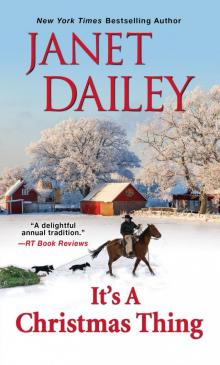 It's a Christmas Thing
It's a Christmas Thing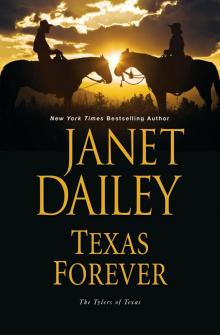 Texas Forever
Texas Forever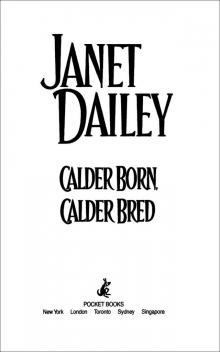 Calder Born, Calder Bred
Calder Born, Calder Bred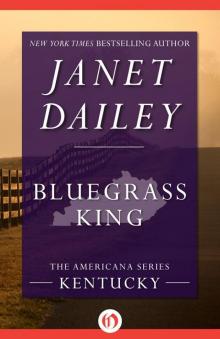 Bluegrass King (The Americana Series Book 17)
Bluegrass King (The Americana Series Book 17)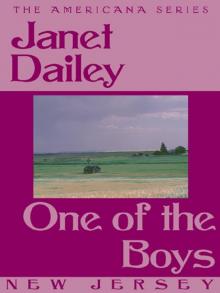 One of the Boys
One of the Boys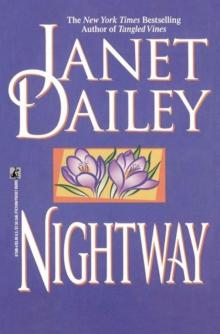 Nightway
Nightway This Calder Sky
This Calder Sky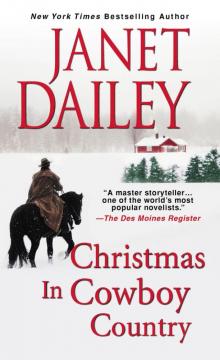 Christmas in Cowboy Country
Christmas in Cowboy Country The Widow and the Wastrel
The Widow and the Wastrel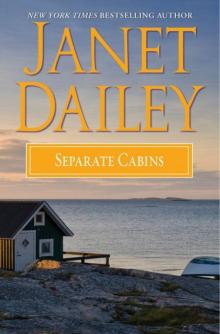 Separate Cabins
Separate Cabins Darling Jenny
Darling Jenny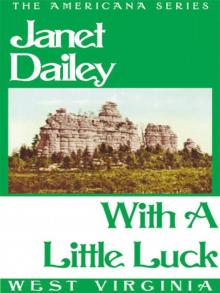 With a Little Luck
With a Little Luck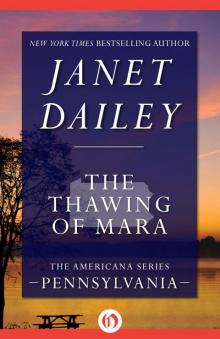 The Thawing of Mara
The Thawing of Mara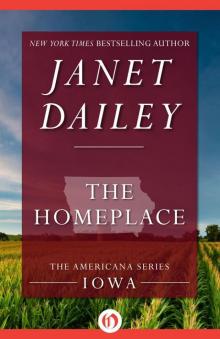 The Homeplace (The Americana Series Book 15)
The Homeplace (The Americana Series Book 15)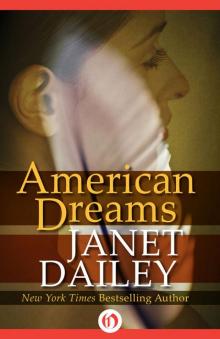 American Dreams
American Dreams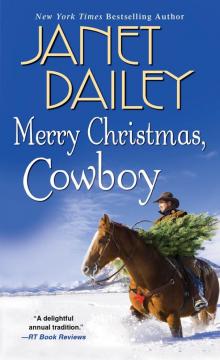 Merry Christmas, Cowboy
Merry Christmas, Cowboy Lord of the High Lonesome
Lord of the High Lonesome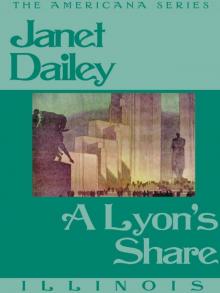 A Lyon's Share
A Lyon's Share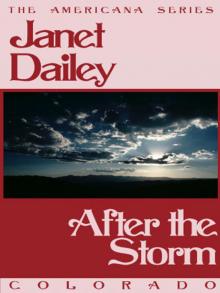 After the Storm
After the Storm Masquerade
Masquerade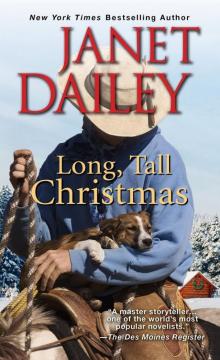 Long, Tall Christmas
Long, Tall Christmas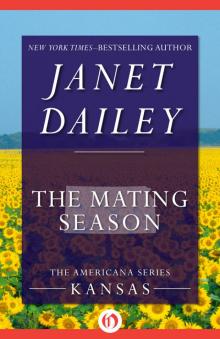 The Mating Season
The Mating Season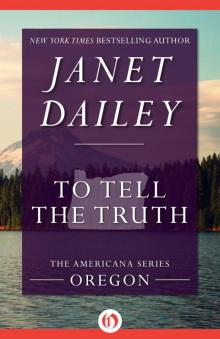 To Tell the Truth
To Tell the Truth A Land Called Deseret
A Land Called Deseret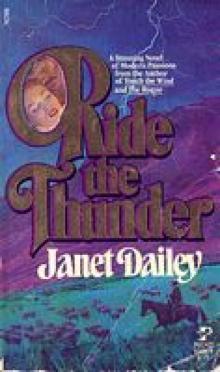 Ride the Thunder
Ride the Thunder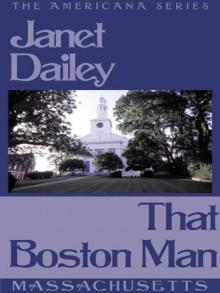 That Boston Man
That Boston Man Wild and Wonderful
Wild and Wonderful Sonora Sundown: Arizona (The Americana Series Book 3)
Sonora Sundown: Arizona (The Americana Series Book 3)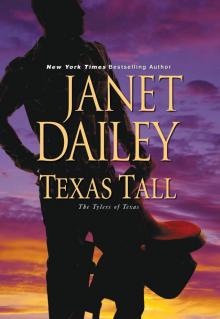 Texas Tall
Texas Tall Giant of Mesabi
Giant of Mesabi The Bride of the Delta Queen
The Bride of the Delta Queen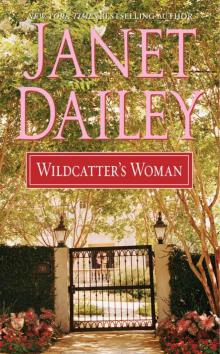 Wildcatter's Woman
Wildcatter's Woman Difficult Decision
Difficult Decision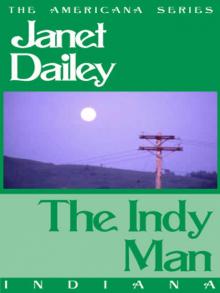 The Indy Man
The Indy Man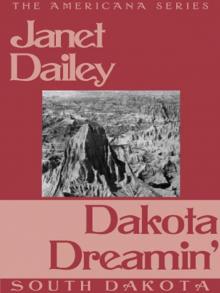 Dakota Dreamin'
Dakota Dreamin' Kona Winds
Kona Winds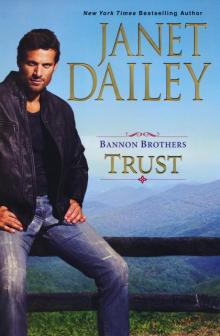 Bannon Brothers
Bannon Brothers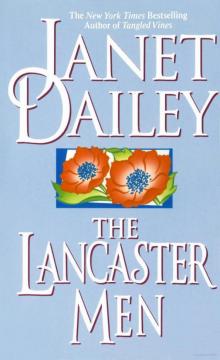 The Lancaster Men
The Lancaster Men janet dailey- the healing touch
janet dailey- the healing touch Strange Bedfellow
Strange Bedfellow Leftover Love
Leftover Love Big Sky Country
Big Sky Country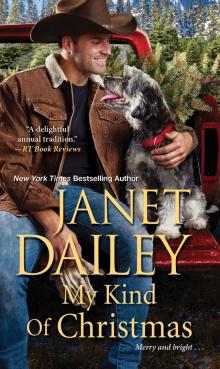 My Kind of Christmas
My Kind of Christmas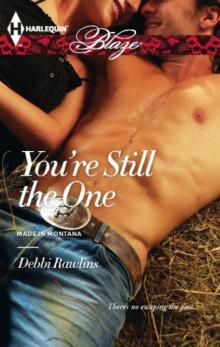 You're Still The One
You're Still The One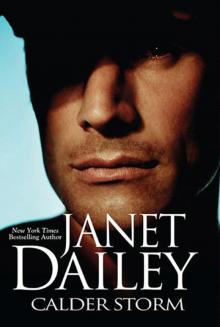 Calder Storm
Calder Storm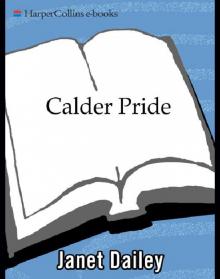 Calder Pride
Calder Pride Low Country Liar
Low Country Liar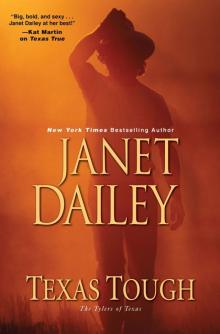 Texas Tough
Texas Tough Foxfire Light
Foxfire Light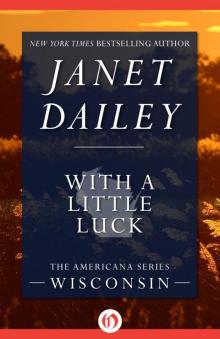 With a Little Luck (The Americana Series Book 49)
With a Little Luck (The Americana Series Book 49)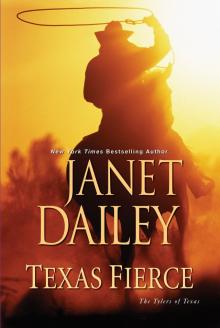 Texas Fierce
Texas Fierce Sentimental Journey
Sentimental Journey The Pride of Hannah Wade
The Pride of Hannah Wade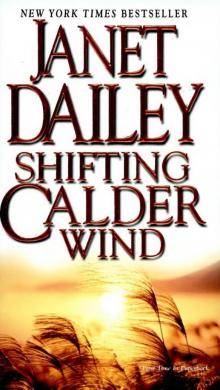 Shifting Calder Wind
Shifting Calder Wind Santa In Montana
Santa In Montana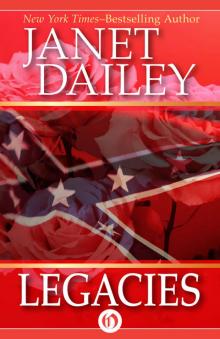 Legacies
Legacies Land of Enchantment
Land of Enchantment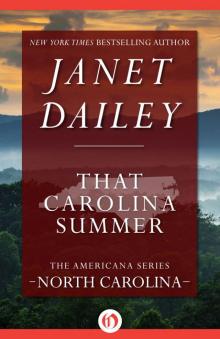 That Carolina Summer (North Carolina)
That Carolina Summer (North Carolina) Reilly's Woman
Reilly's Woman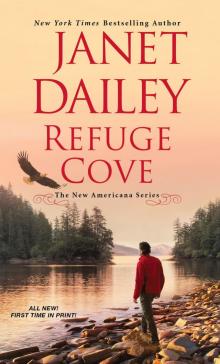 Refuge Cove
Refuge Cove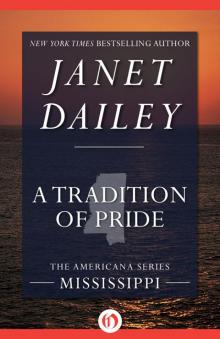 A Tradition of Pride
A Tradition of Pride Bed of Grass
Bed of Grass To Santa With Love
To Santa With Love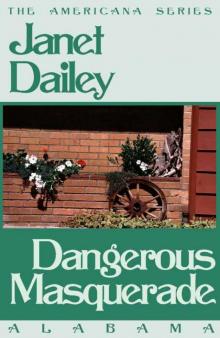 Dangerous Masquerade
Dangerous Masquerade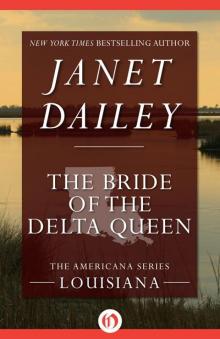 The Bride of the Delta Queen (The Americana Series Book 18)
The Bride of the Delta Queen (The Americana Series Book 18)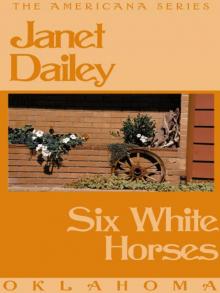 Six White Horses
Six White Horses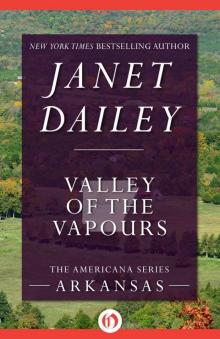 Valley of the Vapours (The Americana Series Book 4)
Valley of the Vapours (The Americana Series Book 4)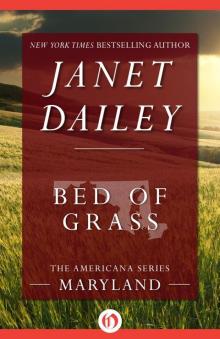 Bed of Grass (The Americana Series Book 20)
Bed of Grass (The Americana Series Book 20)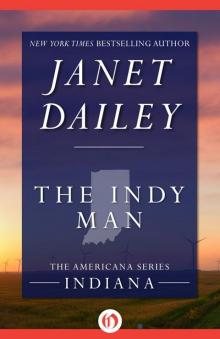 The Indy Man (The Americana Series Book 14)
The Indy Man (The Americana Series Book 14)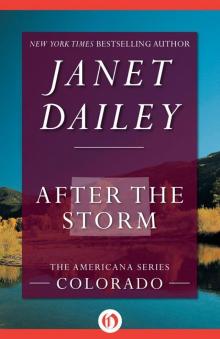 After the Storm (The Americana Series Book 6)
After the Storm (The Americana Series Book 6)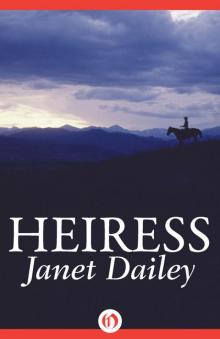 Heiress
Heiress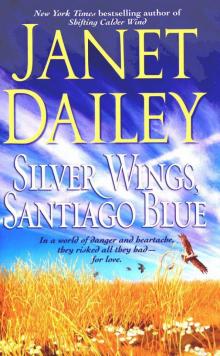 Silver Wings, Santiago Blue
Silver Wings, Santiago Blue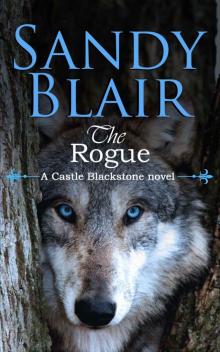 The Rogue
The Rogue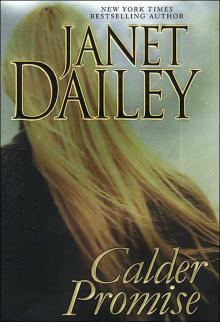 Calder Promise
Calder Promise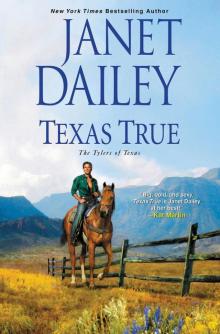 Texas True
Texas True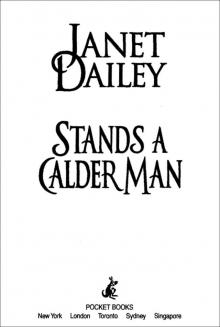 Stands a Calder Man
Stands a Calder Man Fiesta San Antonio
Fiesta San Antonio Fire and Ice
Fire and Ice For the Love of God
For the Love of God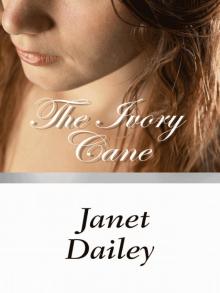 The Ivory Cane
The Ivory Cane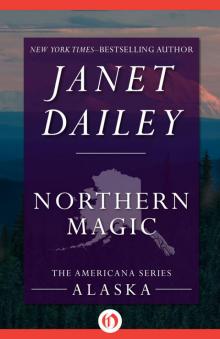 Northern Magic
Northern Magic The Glory Game
The Glory Game The Homeplace
The Homeplace The Great Alone
The Great Alone Summer Mahogany
Summer Mahogany Tangled Vines
Tangled Vines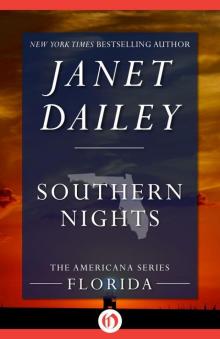 Southern Nights: Florida (The Americana Series Book 9)
Southern Nights: Florida (The Americana Series Book 9)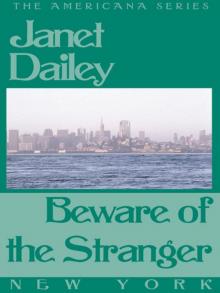 Beware of the Stranger
Beware of the Stranger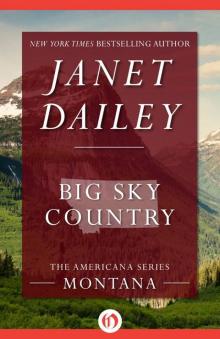 Big Sky Country: Montana (The Americana Series Book 26)
Big Sky Country: Montana (The Americana Series Book 26)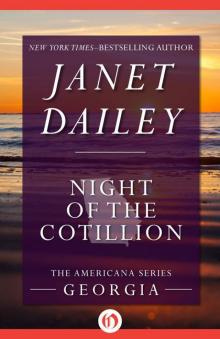 Night of the Cotillion: Georgia (The Americana Series Book 10)
Night of the Cotillion: Georgia (The Americana Series Book 10)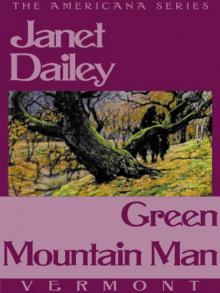 Green Mountain Man
Green Mountain Man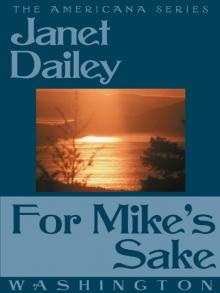 For Mike's Sake
For Mike's Sake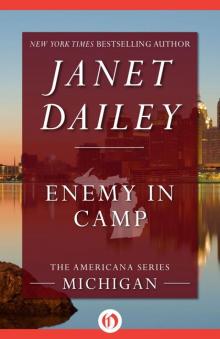 Enemy in Camp (The Americana Series Book 22)
Enemy in Camp (The Americana Series Book 22)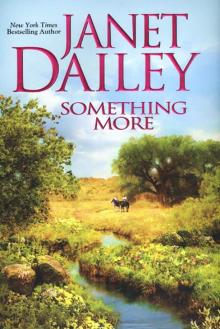 Something More
Something More Rivals
Rivals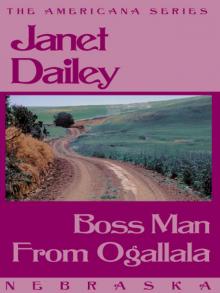 Boss Man from Ogallala
Boss Man from Ogallala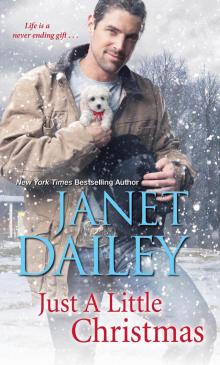 Just a Little Christmas
Just a Little Christmas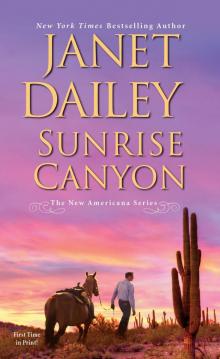 Sunrise Canyon
Sunrise Canyon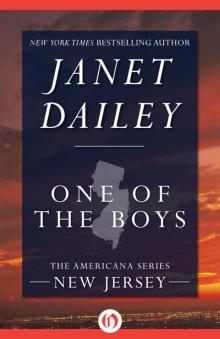 One of the Boys (New Jersey)
One of the Boys (New Jersey)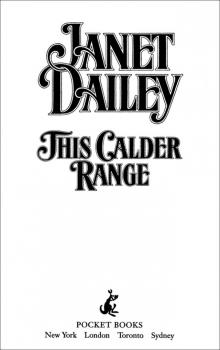 This Calder Range
This Calder Range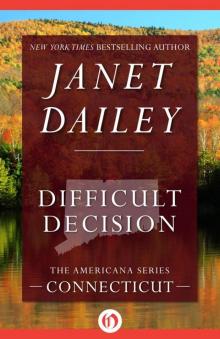 Difficult Decision: Connecticut (The Americana Series Book 7)
Difficult Decision: Connecticut (The Americana Series Book 7)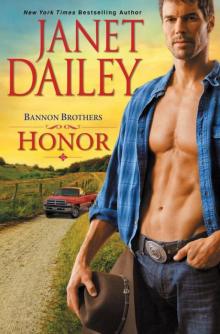 Honor
Honor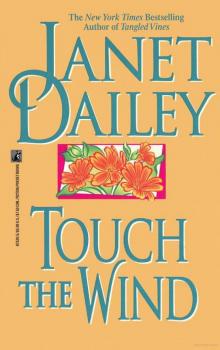 Touch the Wind
Touch the Wind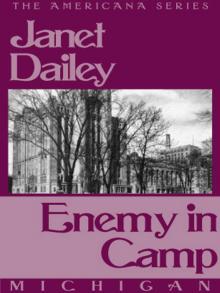 Enemy in Camp
Enemy in Camp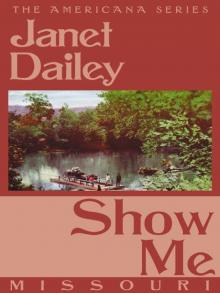 Show Me
Show Me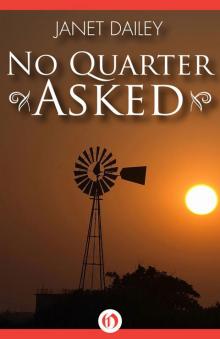 No Quarter Asked
No Quarter Asked The Second Time
The Second Time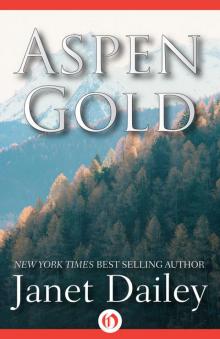 Aspen Gold
Aspen Gold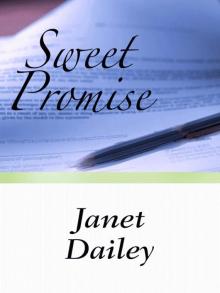 Sweet Promise
Sweet Promise Triumph
Triumph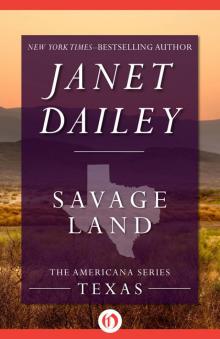 Savage Land
Savage Land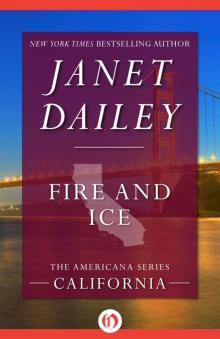 Fire and Ice (The Americana Series Book 5)
Fire and Ice (The Americana Series Book 5)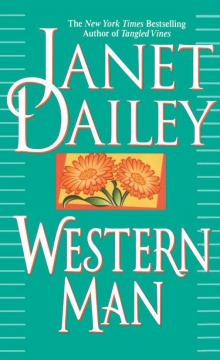 Western Man
Western Man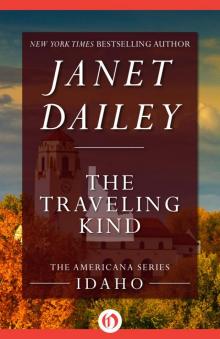 The Traveling Kind
The Traveling Kind The Hostage Bride
The Hostage Bride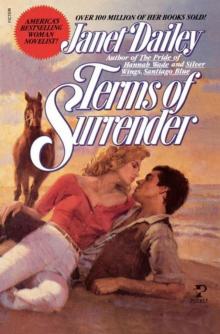 Terms of Surrender
Terms of Surrender Tidewater Lover
Tidewater Lover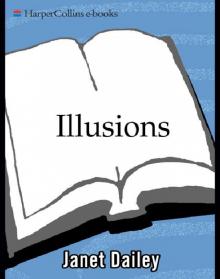 Illusions
Illusions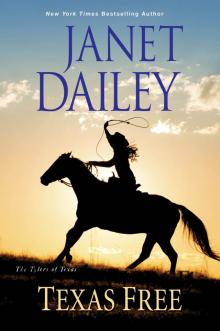 Texas Free
Texas Free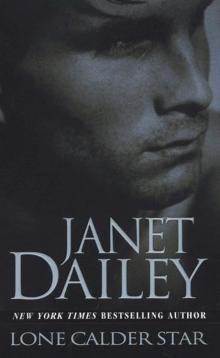 Lone Calder Star (Calder Saga Book 9)
Lone Calder Star (Calder Saga Book 9)